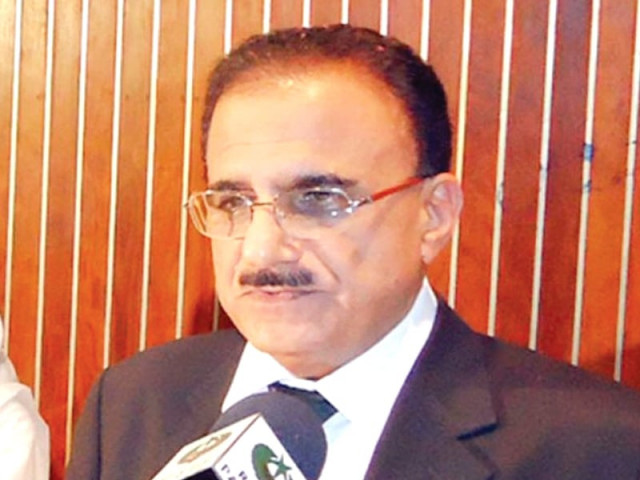SC judge backs accountability of judiciary, army
New accountability bill yet to turn into law, court informed

A file photo of Supreme Court Justice Dost Muhammad Khan. PHOTO:FILE
While hearing a case regarding the acquittal of three people accuse of corruption, Justice Khan asked the National Accountability Bureau (NAB) prosecutor what had happened about the new accountability law. He replied that the bill had yet to take the shape of a law.
The judge said Senate Chairman Raza Rabbani and some other senators had lamented the exclusion of judges and army generals from the ambit of the new accountability law by political parties.
He said across-the-board accountability would be good and he personally believed that judges and generals should be accountable like common citizens and there should be transparency in the process. The new law should be framed after consulting all stakeholders, he added.
PTI rejects proposed accountability bill
Under the current laws, the NAB does not proceed against judges facing allegations of corruption.
Chief Justice of Pakistan Mian Saqib Nisar also referred to the issue of accountability in his additional note with the judgment in 2015 of a case about the 18th and 21st amendments to the Constitution.
“If compared with other judicial institutions around the world, it will be noted that there is no parallel for a judiciary which is appointed by the judiciary and is answerable to the judiciary. I would respectfully venture to suggest that we have sufficient judicial power already and do not need to confer further power on ourselves by clutching at the basic structure doctrine,” he wrote.
He observed that it was not the function of the Supreme Court to weaken democratic institutions and traditions by declaring that the elected representatives of the people were not, in its opinion, discharging their functions honestly, hence those functions in relation to the judiciary would be taken over by the judiciary itself.
“Let it not be forgotten that the judiciary in Pakistan is neither elected by the people nor is it answerable or accountable to the people. It is answerable only to itself under Article 209 of the Constitution,” he wrote.
PPP gives up on accountability of judges and generals
Justice Nisar said no judge of a superior court in Pakistan had ever been prosecuted in a criminal court. He said that in other countries, including India, the general rule was that the superior judiciary was answerable to the elected representatives. He pointed out that even the registrar had been asked not to appear before the Public Accounts Committee of parliament which scrutinised the budgets and expenditures of all government departments.



















COMMENTS
Comments are moderated and generally will be posted if they are on-topic and not abusive.
For more information, please see our Comments FAQ